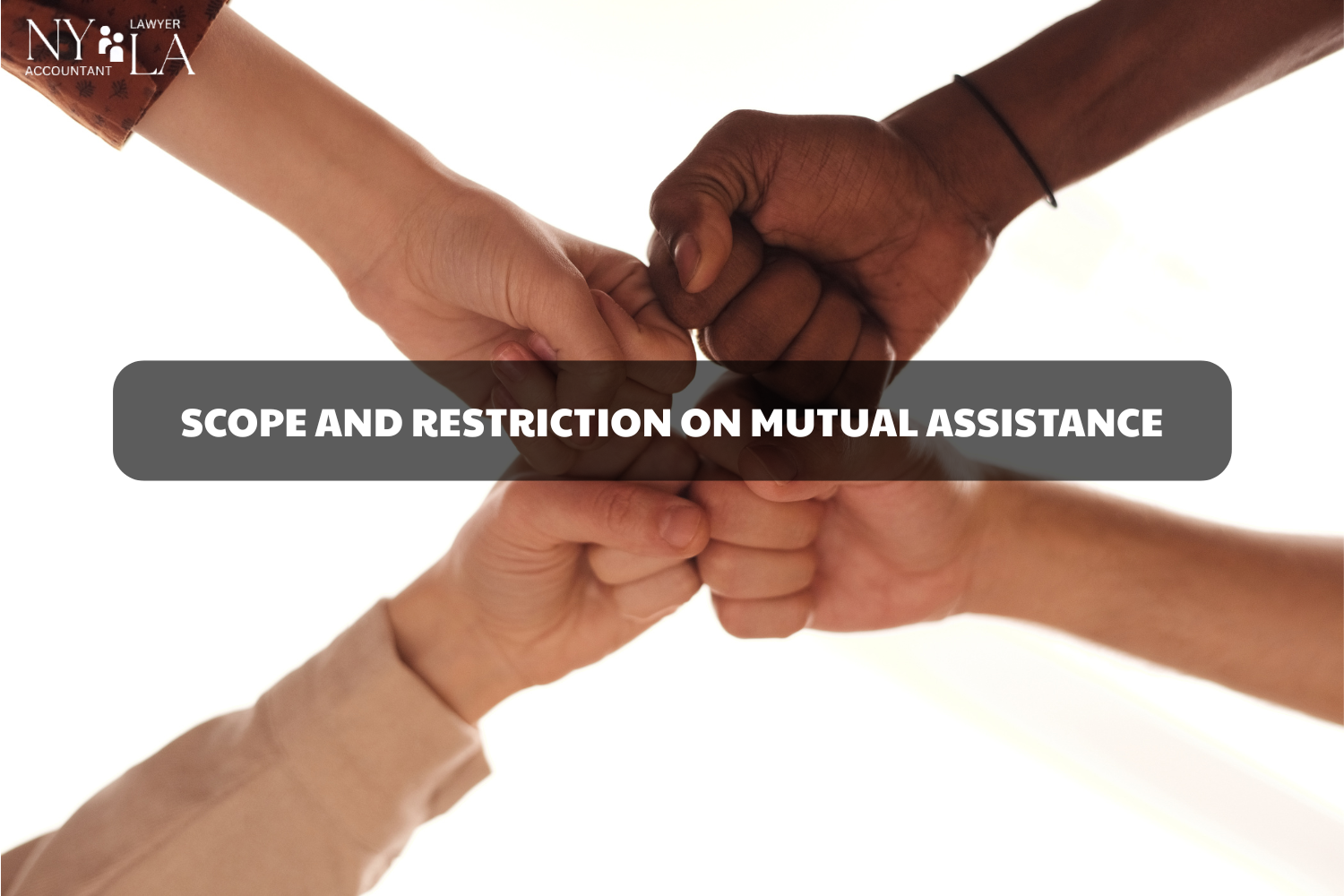Summary
- 1. Understanding Mutual Assistance in Criminal Matters
- 2. Scope of Mutual Assistance in Criminal Matters
- 3. Restrictions on Mutual Assistance in Criminal Matters
- 4. Legal Framework Supporting Mutual Assistance in Criminal Matters
- 5. Importance of Mutual Assistance in Modern Criminal Justice
- 6. Challenges and the Future of Mutual Assistance
- 7. Conclusion
- 8. About NYLA – Korean Legal Office
1. Understanding Mutual Assistance in Criminal Matters
Mutual assistance in criminal matters refers to the formal cooperation between two countries in investigating or prosecuting criminal cases. Specifically, under the Act on International Judicial Mutual Assistance in Criminal Matters in the Republic of Korea, this concept is centered on offering or requesting legal and procedural aid necessary for criminal investigations and trials. Mutual assistance in criminal matters has become increasingly vital in an era of transnational crime, cybercrime, and complex international legal challenges.
2. Scope of Mutual Assistance in Criminal Matters
The scope of mutual assistance in criminal matters is wide-ranging and includes multiple facets of investigative and judicial cooperation:
- Locating Persons or Objects: One of the most common forms of assistance is helping locate individuals or objects relevant to a criminal investigation. This could involve working with law enforcement agencies to track suspects or gather physical evidence.
- Provision of Documents and Records: Countries may exchange official documents, financial records, phone logs, and other crucial data needed for legal proceedings.
- Service of Documents: Delivering subpoenas, summons, or court notices to individuals residing in foreign jurisdictions is a vital component of mutual assistance.
- Evidence Collection: Gathering of evidence, conducting searches and seizures, and verifying the authenticity of materials is often carried out under mutual legal assistance agreements.
- Transfer of Evidence and Property: Items such as weapons, narcotics, or stolen goods may be transferred to the requesting country for examination and trial.
- Testimonies and Statements: Arranging for witnesses to give statements, either in person or via video conferencing, is also part of mutual assistance in criminal matters.

3. Restrictions on Mutual Assistance in Criminal Matters
Despite its broad scope, mutual assistance in criminal matters is not without limitations. These restrictions exist to protect national interests and human rights. The key conditions under which a request for assistance may be denied include:
- National Sovereignty and Security Concerns: If complying with a request threatens the sovereignty, national security, public peace, or public morals of the Republic of Korea, the request can be lawfully denied.
- Discrimination Risks: Requests may be rejected if the accused is likely to face discriminatory punishment due to their race, gender, nationality, religion, political opinion, or membership in a particular social group.
- Political Offenses: Assistance will not be provided if the crime in question is political in nature or if the request is suspected to be politically motivated.
- Non-Criminal Acts: If the offense does not constitute a crime under Korean law or if Korean law does not permit prosecution for such an offense, assistance may be withheld.
- Lack of Guarantee from Requesting Country: Some forms of mutual assistance require formal guarantees from the requesting nation. If such guarantees are not provided, the Republic of Korea is under no obligation to comply.
4. Legal Framework Supporting Mutual Assistance in Criminal Matters
The legal foundation for mutual assistance in criminal matters in Korea is laid out in the “Act on International Judicial Mutual Assistance in Criminal Matters.” This legislation defines procedures, obligations, and limitations for both sending and receiving assistance. It is harmonized with international conventions and treaties, ensuring that mutual assistance aligns with global legal standards.
The act provides detailed protocols on how requests are submitted, the role of the Ministry of Justice, and the process of judicial review for certain sensitive requests. It underscores Korea’s commitment to upholding both international cooperation and domestic legal principles.
5. Importance of Mutual Assistance in Modern Criminal Justice
In today’s interconnected world, mutual assistance in criminal matters is more critical than ever. Cross-border crimes such as money laundering, terrorism, human trafficking, and cybercrime require seamless cooperation between legal systems. By facilitating the exchange of evidence and legal support, mutual assistance enhances the effectiveness and fairness of criminal justice systems worldwide.
Moreover, mutual assistance in criminal matters helps ensure that criminals cannot evade justice simply by crossing international borders. It provides the tools necessary for legal accountability while maintaining a strong commitment to due process and human rights.
6. Challenges and the Future of Mutual Assistance
While mutual assistance in criminal matters is essential, it is not without its challenges. Bureaucratic delays, differing legal standards, privacy concerns, and lack of technological infrastructure can hinder effective cooperation.
To overcome these challenges, countries like Korea are investing in digital platforms for case management, promoting international legal training, and strengthening diplomatic and judicial networks.
In the future, successful mutual assistance in criminal matters will depend on transparency, legal harmonization, and trust between nations.
7. Conclusion
Mutual assistance in criminal matters is a cornerstone of international legal cooperation. By clearly defining its scope and restrictions, the Republic of Korea ensures that such assistance is both effective and aligned with national and international legal standards. As criminal activities become more sophisticated and cross-border in nature, mutual assistance will continue to play a vital role in safeguarding justice, human rights, and the rule of law across the globe.
8. About NYLA – Korean Legal Office

■ NYLA – Your Trusted Legal Partner in Korea
At NYLA, we understand that the success of foreign businesses in Korea requires not only a solid business strategy but also reliable legal support. With a team of experienced Korean attorneys and legal professionals, NYLA provides tailored legal services for companies, investors, and individuals operating or planning to establish a presence in Korea.
We support our clients throughout the entire business journey with comprehensive services, including:
- Legal consultation on company establishment, taxation, and immigration;
- Advice on commercial real estate, franchising, and product distribution;
- Support in human resources, marketing, and business strategy.
In addition to legal advisory, NYLA also represents clients in civil litigation cases related to business, labor, marriage, family, and inheritance to ensure their rights and interests are fully protected.
■ Contact NYLA

If you’re a foreign business or individual looking for a reliable legal partner in Korea, NYLA is here to help. We are committed to delivering effective, practical, and personalized legal solutions for every client.
With a proven track record of assisting hundreds of international clients, our team is equipped to help you navigate complex legal challenges—whether it’s commercial disputes, contract issues, or foreign investment guidance.
Don’t let legal matters hold you back. Let NYLA be your trusted guide in the Korean market.
■ Get in touch with NYLA for expert legal support
| Website: https://nylakoreanlegal.com/
FB: https://www.facebook.com/nyla.koreanlegal Tiktok: https://www.tiktok.com/@nylakoreanlegal Youtube: https://www.youtube.com/@NYLA-xd8qx Email: info.NYLAkoreanlegal@gmail.com SĐT: +82 10-3415-7859 |
 |






















































